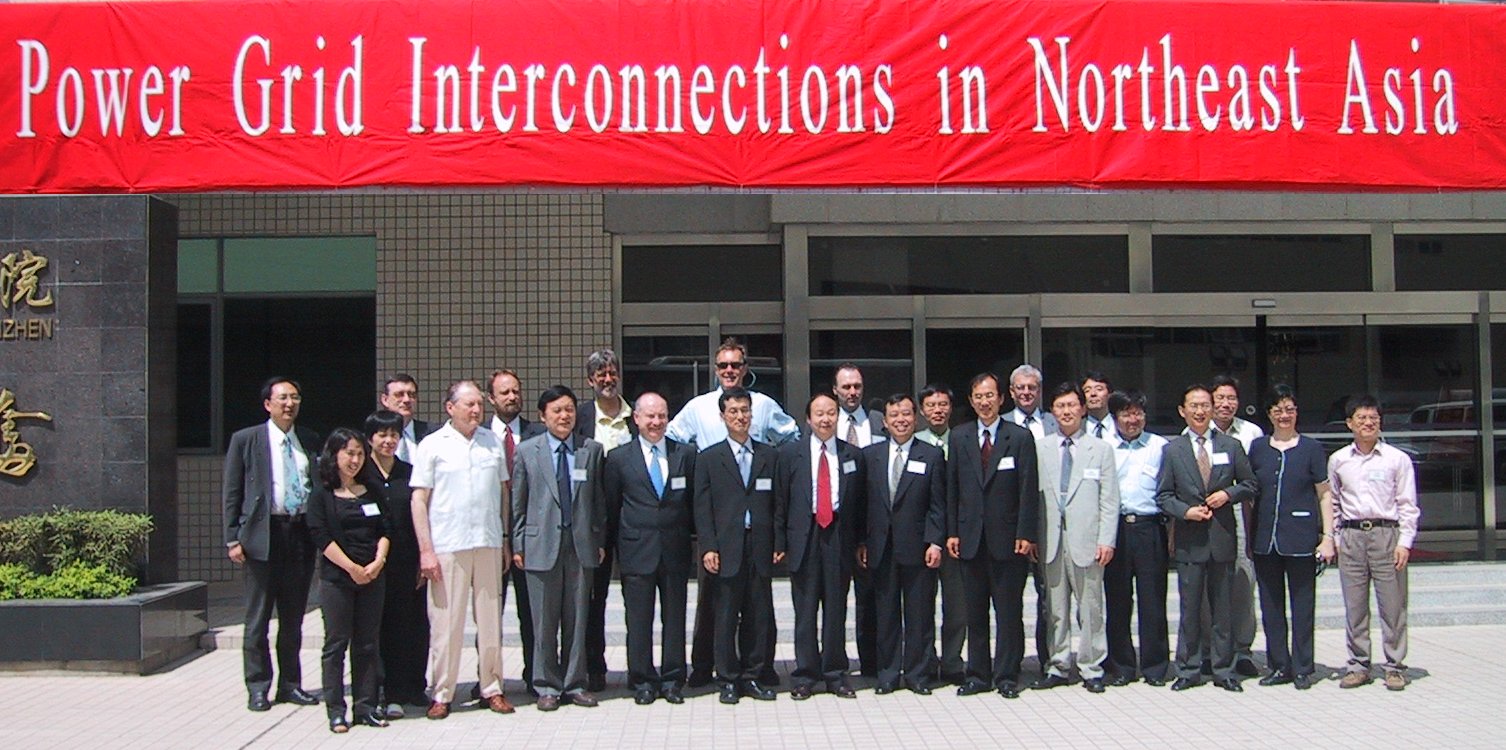Second Workshop on Power Grid Interconnection in Northeast Asia
Shenzhen Bay Hotel, Shenzhen, China, May 6 – 8, 2002
[Presentations & Papers] [Agenda] [Participants] [Participant Contact Information] [Sponsors]
The Second Workshop on Northeast Asia Power Grid Interconnection was held in Shenzhen, China on May 6-8, 2002. The meeting was co-hosted by the Tsinghua University – Hong Kong University Shenzhen Power System Research Institute and the Nautilus Institute. Power system experts from South Korea, China, Russia, and the United States explored the technical and economic feasibility of building grid connections between the electricity transmission systems of the Russian Far East, the two Koreas (the Republic of Korea and the Democratic Peoples’ Republic of Korea-the ROK and DPRK), and China.
For the workshop, Nautilus commissioned Dr. Sergei Podkovalnikov and his research group from the Energy Systems Institute of the Siberian Branch of the Russian Academy of Sciences (in Irkutsk, Russia) to summarize the results of economic pre-feasibility studies of selected options for grid interconnections. Participants discussed the findings of the Russian study, and also considered the goals and means for collaboration on a “pre-feasibility study” of grid interconnections that Nautilus proposes to help organize, as well as the practical issues involved with implementation of such a study. Workshop discussion topics included:
- The current status of economic and technical issues associated with potential power grid interconnections in each of the countries represented, and review of the findings of the Russian analysis of the Russia-DPRK-ROK route;
- The analytical methodologies that might be used in an ongoing joint pre-feasibility study of grid interconnection, along with potential data sharing mechanisms, including the sharing of data for use in software tools for network stability analysis;
- The creation of a pre-feasibility working group of Russians, North Koreans, South Koreans and Chinese to work specifically on preliminary quantitative analysis of interconnection options; and
- Specific safety and grid stability issues related to the Korean Peninsula Energy Development Organization (KEDO) Light Water Reactor (LWR) nuclear power plant currently under construction in the DPRK, and how those issues intersect with incentives and options for construction of international power grid interconnections on the Korean peninsula.


